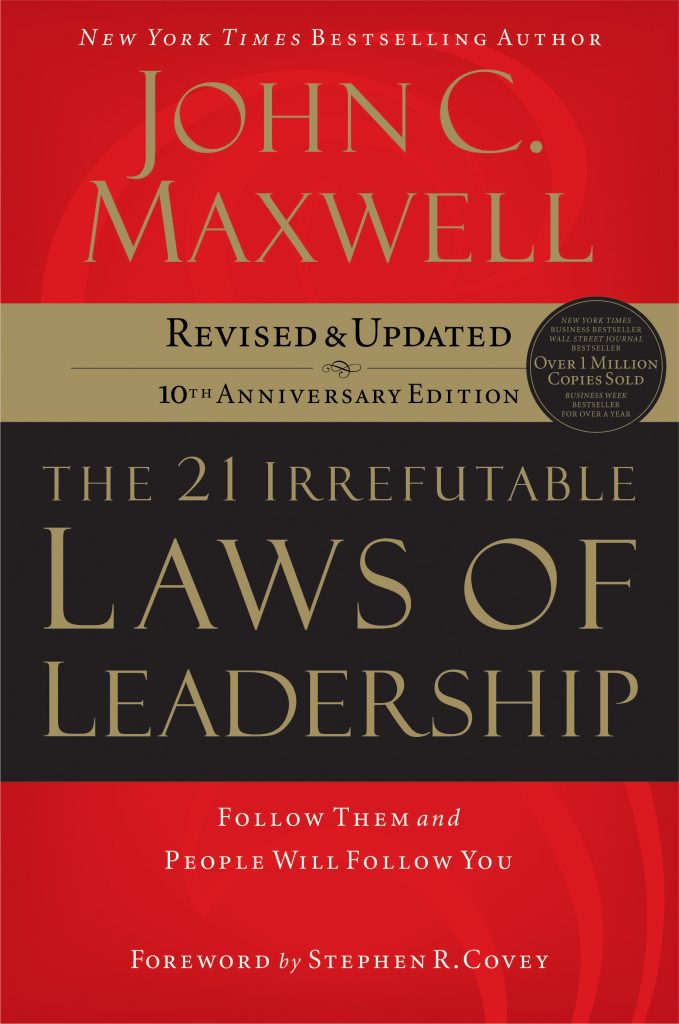The 21 Irrefutable Laws of Leadership by John C. Maxwell (#19 The Law Of Timing)
Podcast: Play in new window | Download (Duration: 4:13 — 4.1MB)
Subscribe: Apple Podcasts | Spotify | RSS | More

First published in September 1998, The 21 Irrefutable Laws Of Leadership by John C. Maxwell put Maxwell at the forefront of leadership experts.
The book contains a variety of exercises that will help you not only plant the ideas firmly into your life, but they’ll help you improve your awareness and identify your needs. You’ll likely want to listen to each chapter more than once so you can fully grasp each law.
The Peer Advantage is all about leadership. The courage, conviction and drive to improve fuels the peer advantage. Leadership and personal growth aren’t for the faint of heart. The paradox is that vulnerability – the kind of vulnerability required to join a group of your peers so you can grow and transform your life – is the major requirement for anybody who will take full use of the peer advantage.
The pain of going it alone is an unnecessary pain. There is a better way – a more courageous path to higher success. Surround yourself with other business owners who want the same things you want – growth, improvement, transformation and success. They’ll lift you up and serve you. You’ll do the same for them.
If you’re interested in joining a small, intimate group of just 7 business owners from around the United States who come together via a video conferencing platform, then click here for details.
Now dive into this audio summary and get busy growing your leadership. Enjoy learning and performing each law –
19. THE LAW OF TIMING: WHEN TO LEAD IS AS IMPORTANT AS WHAT TO DO AND WHERE TO GO

Subscribe to the podcast
 To subscribe, please use the links below:
To subscribe, please use the links below:
- Click Here to Subscribe via iTunes
- Click Here to Subscribe via RSS (non-iTunes feed)
- Click Here to Subscribe via Stitcher
If you have a chance, please leave me an honest rating and review on iTunes by clicking Review on iTunes. It’ll help the show rank better in iTunes.
Thank you!
The 21 Irrefutable Laws of Leadership by John C. Maxwell (#19 The Law Of Timing) Read More »
